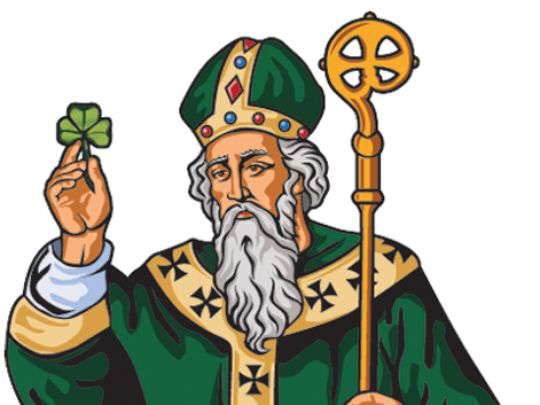I believe the Irish comedian David O'Doherty once wryly described Saint Patrick as the 'Patron Saint of urinating in doorways'. Saint. Patrick's Day is a national holiday that has become synonymous with decadence, debauchery and generally doing things that we instantly regret. This appraisal of the event lives on to this day. On a more benign level it is perceived equally negatively as a day of miserable weather, of American tourists claiming their heritage while sporting the naff 'Kiss me I'm Irish' t-shirts and of samba dancers awkwardly gliding through the streets amidst the rain revealing their true pasty skin tone. If that synopsis hasn't covered it, it is frightfully ironic that this Saint Patrick bloke wasn't even born in Ireland. Sure we were probably drunk when reading his birth cert…
I urge you to set these preconceptions behind and experience a parade tomorrow.
We've all stood hunched for hours on end in the lashings of rain watching a few rickety, underwhelming floats pass by in the local Patrick's Day parade at some point in our lives. I have, and it isn't a particularly pleasant experience.
However St. Patrick's Day is a showcase of the strength of Irish communities. Local communities in Ireland band together, combining their resources, brains and enthusiasm to produce parades and celebrations that represent the values of community spirit and love which are omnipresent in Irish communities. When visiting relatives in Trim in County Meath a couple of years ago, I was taken aback by the level of participation in the St. Patrick's Day parade. Hordes of locals, old and young, united to parade the streets representing a variety of clubs, organisations and businesses who each provide invaluable services to the community. Hundreds of onlookers, including me, stood close-by cheering them on and praising their contributions to the community. Does community spirit like this exist in every country? Of course not.
Furthermore, Saint Patrick's Day is a chance to showcase Ireland's diversity and prosperity. Just because people wear shamrocks and are clad head-to-toe in green does not necessarily mean that we spend the day marvelling at how great our country is. I think that St. Patrick's Day in Ireland has certainly developed into a celebration that embraces our diversity, a true representation of the 21st Century Ireland. It's a day where we focus on modern Ireland's varied social tapestry. Michael D Higgins, our president, addressed the nation today, praising those who contribute to our communities: "Their passion, energy and commitment are building blocks of our nation, and their practical actions of solidarity provide the threads that make up the multi-coloured tapestry that is our Irish nation today."
The love of the Irish is echoed in the widespread celebrations that take place all over the world. The Irish diaspora embrace Saint Patrick's Day, as it gives them a chance to connect to their Celtic roots and to pay homage to their ancestors who faced great hardship in their journeys across the choppy waters. Tomorrow, everyone has the opportunity to identify as Irish and share the warm, welcoming and cheerful characteristics which define the Irish character.
I'm proud to be Irish, every day of the year, including Saint Patrick's Day.
 |
| A shot from the parade in Dublin. |
Furthermore, Saint Patrick's Day is a chance to showcase Ireland's diversity and prosperity. Just because people wear shamrocks and are clad head-to-toe in green does not necessarily mean that we spend the day marvelling at how great our country is. I think that St. Patrick's Day in Ireland has certainly developed into a celebration that embraces our diversity, a true representation of the 21st Century Ireland. It's a day where we focus on modern Ireland's varied social tapestry. Michael D Higgins, our president, addressed the nation today, praising those who contribute to our communities: "Their passion, energy and commitment are building blocks of our nation, and their practical actions of solidarity provide the threads that make up the multi-coloured tapestry that is our Irish nation today."
The love of the Irish is echoed in the widespread celebrations that take place all over the world. The Irish diaspora embrace Saint Patrick's Day, as it gives them a chance to connect to their Celtic roots and to pay homage to their ancestors who faced great hardship in their journeys across the choppy waters. Tomorrow, everyone has the opportunity to identify as Irish and share the warm, welcoming and cheerful characteristics which define the Irish character.
I'm proud to be Irish, every day of the year, including Saint Patrick's Day.

Comments
Post a Comment